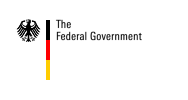With their climate protection agreement, the heads of state and government have taken the agreement brokered last year in Heilgendamm one step further. At the last G8 summit, the seven leading industrial nations and Russia agreed, under the German Presidency, to "seriously explore" whether it was possible to halve CO2 emissions by 2050.
Playing a leading role in climate protection
This new agreement marks the first time that the USA too has pledged to reduce its greenhouse gas emissions. Now the aim must be to get emerging economies such as China and India on board. "We can no longer halt the rising temperatures alone," declared Angela Merkel in Hokkaido, "We must all pull together".
The G8 nations aim to enter the negotiations on a post-Kyoto climate protection agreement scheduled to be held in Copenhagen at the end of 2009 with the climate protection goals they have now set themselves. The negotiations will be organised under the auspices of the United Nations. The Chancellor spoke of a "clear commitment" to achieve an agreement at the climate change conference. The G8 nations, she said, bear a special responsibility, but the emerging economies too must do their bit.
Taking one step at a time together to protect the climate
At the same time the Chancellor called for patience. There will still be "a lot of tough negotiating" before any climate agreement is signed. In order to achieve long-term climate protection goals, we first need medium-term strategies and interim steps.
For the first time, the sixteen heads of state and government of the world’s leading economies came together to discuss climate protection. Alongside the five outreach countries, Brazil, China, India, Mexico and South Africa, Australia, Indonesia and Korea joined the G8 at the negotiating table. "The issue has become a top-level concern, as it should be," said the Chancellor happily.
Climate change does not stop at national borders any more than turbulence on the international financial markets. That is why the Chancellor is convinced that there can only be one strategy. "We must learn to think, live and make decisions at global level," she declared.
International organisations will play an increasingly important part. As for the global economy, it must cooperate more closely than has hitherto been the case. The financial crisis showed that the International Monetary Fund could, for instance, play the part of an early warning system.
For greater transparency in oil prices
There are many aspects to energy – from climate protection to economic and social factors. In view of the rocketing oil prices, the G8 nations are working for greater transparency on the part of oil-producing countries.
At the same time they aim to cut demand, by making better use of renewable energies and boosting energy efficiency. "We must become less dependent on oil and gas," the Chancellor reaffirmed after the consultations.
Africa – help towards self-help
The G8 states have reaffirmed their commitment to achieving the Millennium Development Goals. Hunger and poverty in the world is to be halved by 2015 according to the MDGs. Every year a report will be drawn up about the status of development assistance. In this the G8 are responding to the demands of developing countries.
In the fight against infectious diseases in Africa the G8 states confirmed assistance totalling 60 billion dollars over a five-year period. In Heiligendamm this sum was laid down, but the concrete timescale was not specified.
"In terms of the results of last year, we have again made good progress," summed up the Chancellor. And next year we will meet again, under the Italian G8 Presidency.
